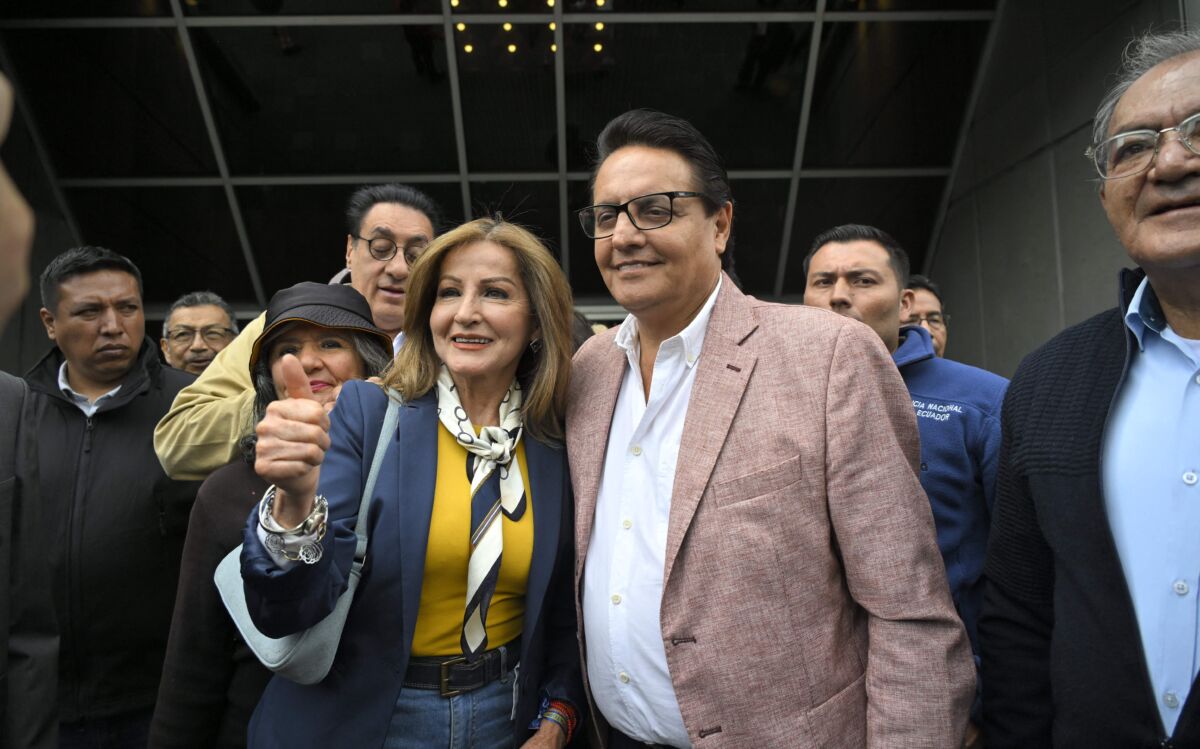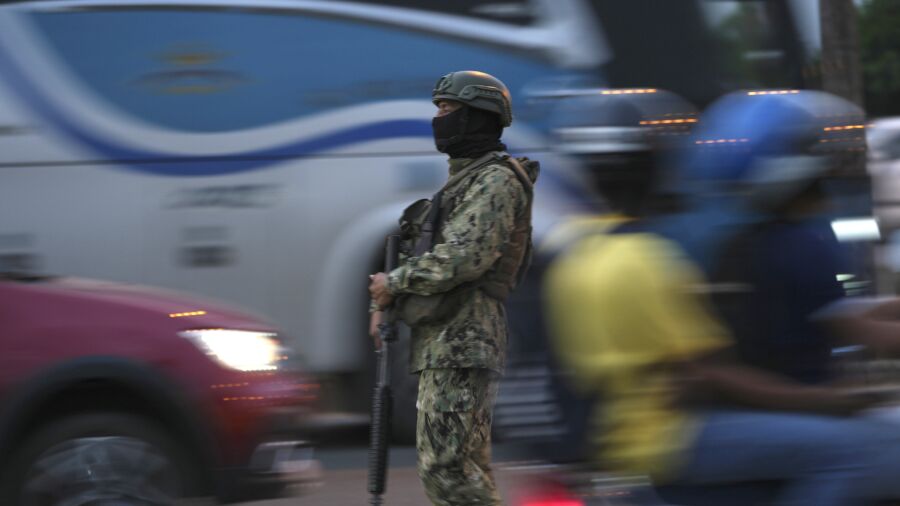Another political leader was assassinated in Ecuador on Monday, bringing the number of politics-related slayings within the last four weeks to three in the run-up to the country’s presidential elections on Sunday.
Pedro Briones, leader of left-wing Revolución Ciudadana, the party of former President Rafael Correa, was shot dead when he stood outside his house in the town of San Mateo, in the northern province of Esmeraldas.
The fatal shooting was confirmed on X, formerly Twitter, by Luisa González, the frontrunner in the presidential election for the same party.
“Ecuador is experiencing its bloodiest episode,” Ms. González wrote. “We owe this to the total dereliction of an inept government and a state taken over by mafias.”
She extended her condolences to the victim’s family: “A heartfelt hug to the family of colleague Pedro Briones, fallen by the hands of violence.”
Mr. Briones was a political leader from the rural parish of San Mateo de Esmeraldas. The men who shot him got away on a motorcycle, according to local police.
Mr. Briones was taken to hospital, where his death was confirmed.
Assassination of Fernando Villavicencio
The shooting came less than a week after the assassination in broad daylight of presidential candidate Fernando Villavicencio, a former investigative journalist with a famously tough stance on organized crime and corruption.
Mr. Villavicencio was killed on Aug. 9 after a campaign event in Quito, the capital, despite having a security detail that included police and bodyguards.
Mr. Villavicencio was with the centrist conservative party Construye.

Thousands of people have been killed over the past three years in Ecuador as the country has transformed into a major drug trafficking hub as cartel-aided local gangs battle for control of the streets, prisons, and drug routes—a war that includes political intimidation and elimination.
Coastal cities have been a main target as drug gangs fight over access to the ports to ship drugs internationally.
On July 23, the recently re-elected mayor of the coastal city of Manta, Ecuador’s third largest city, was assassinated in broad daylight.
In February, a mayoral candidate was assassinated in the coastal town of Puerto Lopez, hours before the polls opened—for an election he won. In January, a mayoral candidate for the coastal city of Salinas was shot dead by a convicted drug trafficker who had been recently released from jail.
The country’s police tallied 3,568 violent deaths in the first six months of this year, far more than the 2,042 reported during the same period in 2022. That year ended with 4,600 violent deaths, the country’s highest in history and double the total in 2021.
Fighting the cartels has been a central topic in the elections.
In an interview with Associated Press, Ms. González said she revamped her security detail following the killing of Mr. Villavicencio but continued to refuse to wear a bulletproof vest, arguing that she is a Christian woman.
“I have faith in God; he is the one who takes care of us,” she said.
Ms. González criticized the government of President Guillermo Lasso for lacking control inside detention facilities, which she said prisoners and organized crime have turned into their productive and recreational centers.
At least 400 inmates have died since 2021 during various riots.
Adolfo Macías—Los Choneros Ringleader
On Saturday, authorities moved Adolfo Macías, alias “Fito,” leader of one of the country’s most powerful gangs, Los Choneros, from Guayaquil federal jail into La Roca maximum-security. A week before his assassination, Mr. Villavicencio claimed the gang leader had threatened him and his campaign.
Before the transfer, 3,600 soldiers and police raided the federal jail, a facility described by local media as “the untouchable lair of the criminal and his criminal gang.” Inside, police seized weapons, ammunition, and explosives.
In response to Fito’s transfer, inmates of the regional jail climbed the roof of the facility on Monday in protest, demanding the return of Fito.
At the same time, at least 150 bikers arrived at La Roca, blocking the main road and demanding the ringleader’s return to the regional jail.
The Associated Press contributed to this article.


